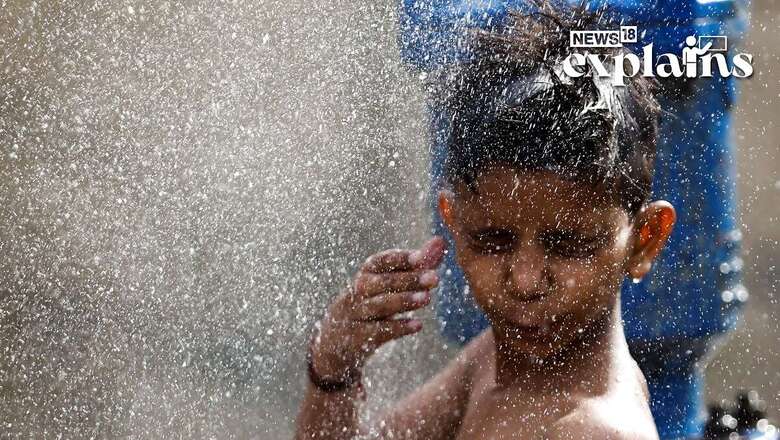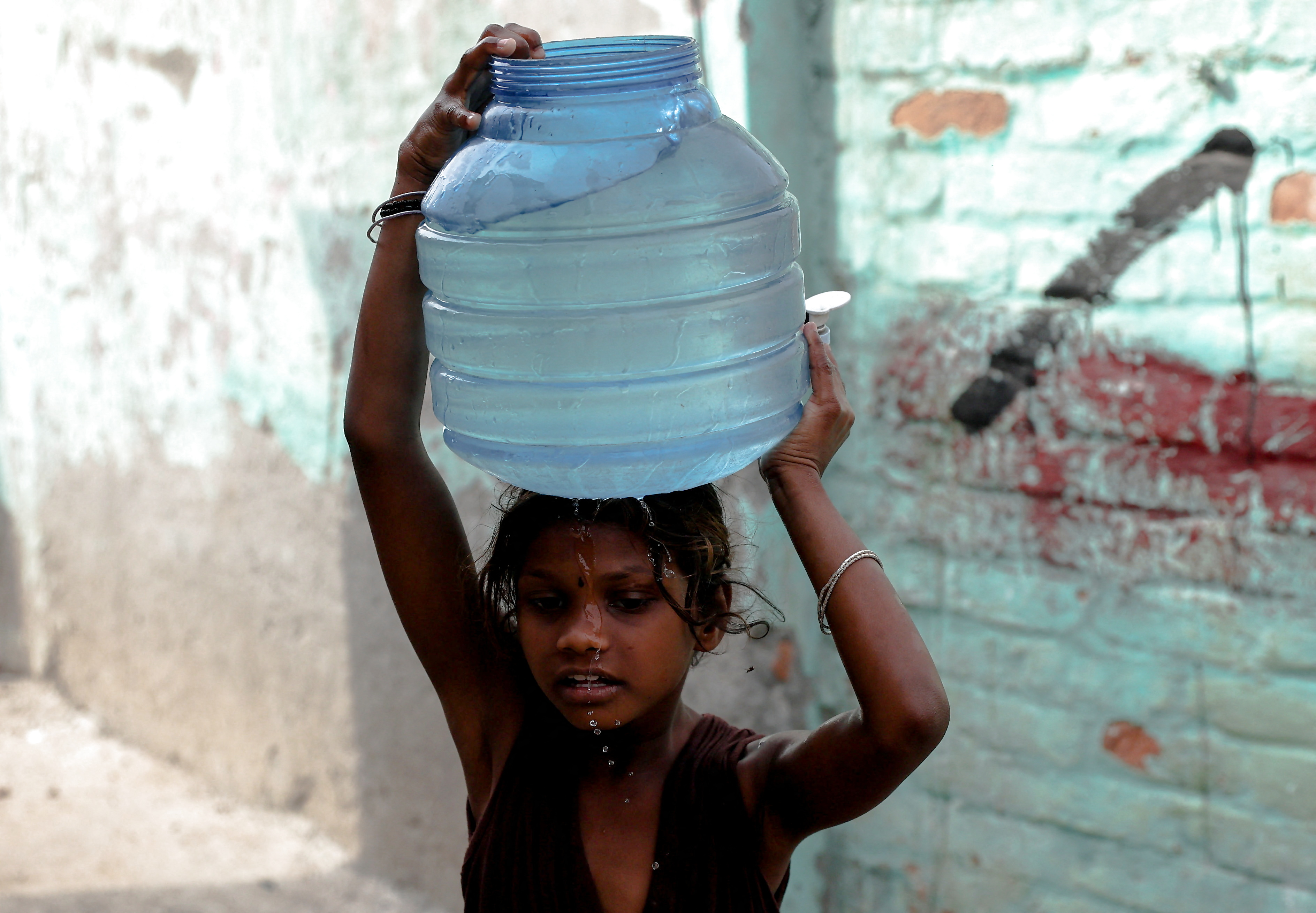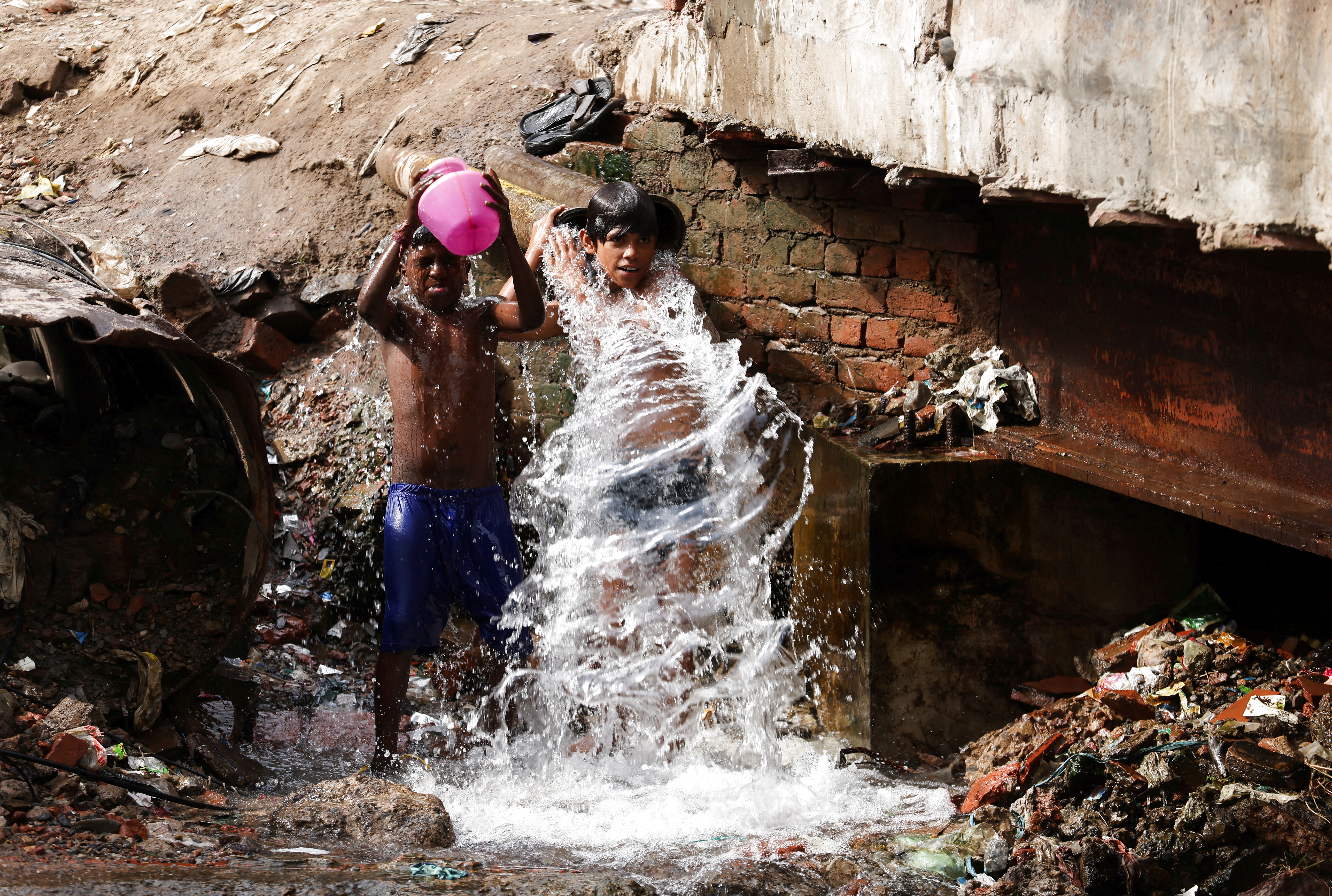
views
Summers are approaching in India. Some states had seen rising temperatures last week and had announced a break for state schools amid the heat. Schools in West Bengal resumed in-person classes Monday, after closure of the campuses for one week due to extreme heat wave conditions.
Climate change models have also predicted that heatwave-like conditions are set to increase in precedence over the coming years due to global warming. In such a scenario, it is important to understand the terminology and science around concepts that define what affect our body in such temperature and humidity conditions.
This is where the concept of relative humidity comes into place.
What is Relative Humidity?
The term “relative humidity” refers to the amount of humidity in the air as opposed to the maximum amount that might exist. Relative humidity is a common metric used by meteorologists to characterise the weather in distinct locations. More water vapour may be present in the air when it’s warm compared to when it’s cold.
Why is Relative Humidity Important for Us?
Our bodies produce perspiration or sweat to cool off on hot days. Through our skin, sweat is expelled to the surface. The liquid evaporates there. Water absorbs heat from the surface it is lying on as it transforms from a liquid to a gas. As a result, as sweat evaporates, heat from the skin is absorbed, cooling the skin.
The amount of moisture in the air increases with its relative humidity. Air won’t readily receive more moisture when it already has a high moisture content. Your skin’s sweat cannot evaporate as a result. The body continues to perspire because it still anticipates cooling off at the same moment, explains a report by The Hindu.

Because of this, on a hot day, you can sweat even when you’re standing motionless, and your body will continue to build up heat if the relative humidity is high. This might get dangerous very soon.
But Why?
That’s because of our body’s wet bulb temperature, exceeding which can become even fatal for us. Wet-bulb temperature is the greatest temperature at which water will not evaporate in a given quantity of humidity. It acts as a proxy for how efficiently the human body can regulate its temperature. The highest acceptable wet-bulb temperature for humans is 35°C (95 °F) for six hours. Above that point, even healthy people begin to develop serious, often deadly health problems, according to a report by Vox.
On various times, regions in Iran, Pakistan, and India, all densely populated countries, have neared or surpassed this level. Climate change is increasing the number and severity of extreme heat events as global average temperatures rise. Since 1979, the number of areas on the planet reaching the human wet-bulb temperature limit has doubled. Read more on this here
The Hindu reports that most people regard relative humidity between 30 and 60 per cent to be pleasant. Humidifiers are frequently used in environments with humidity levels below this to raise the humidity. A fan will assist circulate the air around you and speed up sweat evaporation when the temperature is greater.
How to Calculate Relative Humidity?
The wet and dry bulb thermometer, often known as the hygrometer, measures the relative humidity of the air. Two mercury thermometers with comparable readings make up the hygrometer.
Hygrometers can be made using at home science experiments or can also be purchased.
How to Protect Yourself Against Summer Humidity
It would be best to check the relative humidity before stepping out, either through a hygrometer or an app that reports on relative humidity.
If possible, one such also avoid strenous activity or workout in such conditions, otherwise it could cause a heat rash, heat stroke, etc.

Another important thing is to always stay hydrated, and pick breathable clothes in comfortable fits. Even a few hours in cool air can help your body heal after sweating in the heat. If your home doesn’t have air conditioning, you can find solace at your neighbourhood coffee shop, theatre, public library, museum, or shopping centre.
How to Keep Your Home Cool Without an AC
Keep Curtains Drawn: Keep blinds drawn or your curtains drawn because 76% of the sunshine that enters your home through the windows converts to heat. According to a report by Avail, medium-colored drapes with white-plastic backing to lower indoor temperatures can work, while some individuals choose blackout curtains to fully block out the sun by covering windows.
Close Doors: Close the doors to the rooms you don’t use as frequently, such as bedrooms or bathrooms, if you spend most of your time in one.
Lightbulbs Matter: By wasting 90% of the energy they consume, incandescent light bulbs produce the greatest heat, therefore switching to CFL (compact fluorescent lamps) or LED bulbs can help keep your home cool, the report says.
How to Use Fans the Correct Way: The report also recommends using your fans in the right way to make your home cool. The best technique to move cooler air and push hot air out is to create a cross wind with fans.
Aim the fan at the warmest area of your home from the coolest spot (either the coldest room or the outside air coming in through a shaded window). This should assist in pushing hotter air outside and bringing in cooler air from one side of the home.
You can also try angling a big bowl of ice in front of a fan as a makeshift air conditioner. This simple approach forces the ice-cold air into the room. And as mentioned above, check the relative humidity of the day before deciding on your outdoor activities on a hot day. You can also if possible, invest in a dehumidifier to keep yourself healthy.
Read all the Latest India News here



















Comments
0 comment